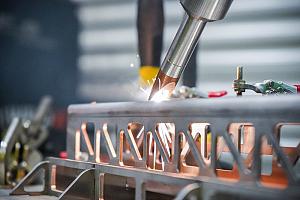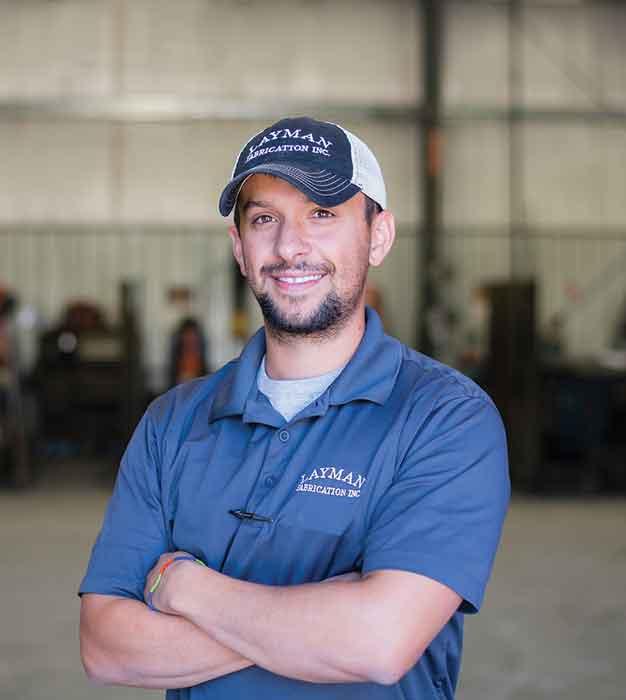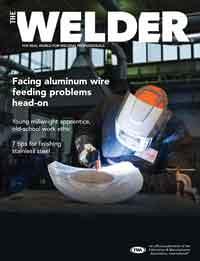- FMA
- The Fabricator
- FABTECH
- Canadian Metalworking
Categories
- Additive Manufacturing
- Aluminum Welding
- Arc Welding
- Assembly and Joining
- Automation and Robotics
- Bending and Forming
- Consumables
- Cutting and Weld Prep
- Electric Vehicles
- En Español
- Finishing
- Hydroforming
- Laser Cutting
- Laser Welding
- Machining
- Manufacturing Software
- Materials Handling
- Metals/Materials
- Oxyfuel Cutting
- Plasma Cutting
- Power Tools
- Punching and Other Holemaking
- Roll Forming
- Safety
- Sawing
- Shearing
- Shop Management
- Testing and Measuring
- Tube and Pipe Fabrication
- Tube and Pipe Production
- Waterjet Cutting
Industry Directory
Webcasts
Podcasts
FAB 40
Advertise
Subscribe
Account Login
Search
Tips for welders to nail first job interview
Fab shops value good work ethic, coachability, and commitment over ability to weld and fabricate
- By Amanda Carlson
- June 24, 2020
- Article
- Shop Management
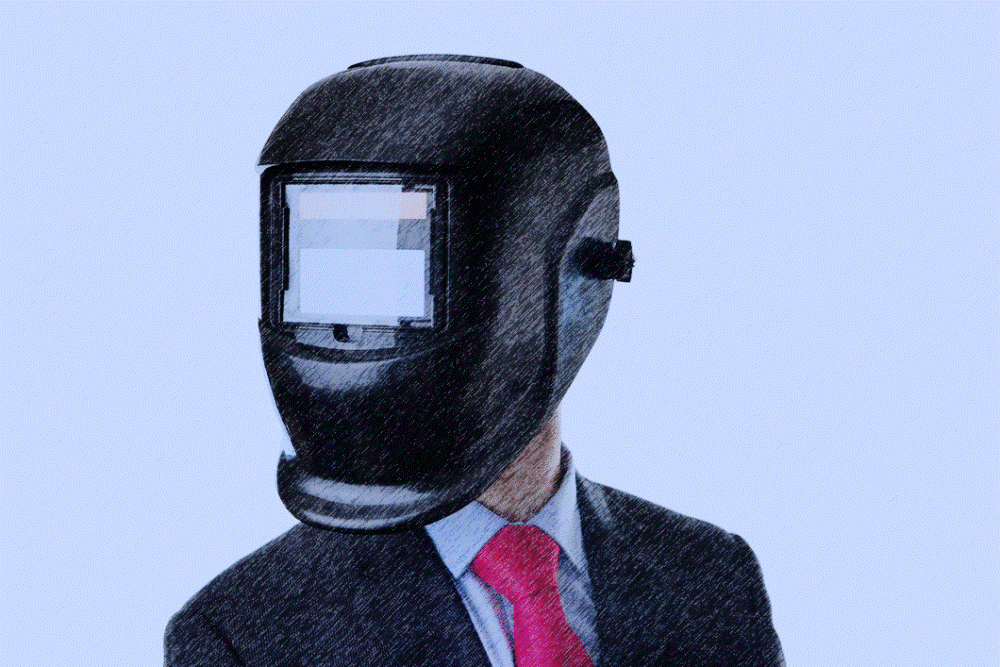
For welders straight out of tech school preparing for that first job interview, here are a few key points to keep in mind. Getty Images
The process of finding a job can be stressful. Whether you’re fresh out of technical school or a seasoned veteran, searching for a job that is right for you is tough.
On the flip side, finding the right employee is equally hard. Kyle Layman, president of Layman Fabrication Inc., North Vernon, Ind., has had some well-documented struggles in his search to find motivated, committed individuals to join his team. In fact, it’s a struggle he spoke about in detail with The WELDER in a previous issue.
As founder and CEO of Rig Fab, Baton Rouge, La., an enterprise that provides weld education, mentorship, and resources to connect welders and employers in the industrial, construction, and power generation industries, Aubrey Greene is familiar with the struggles of both job seeker and employer.
The job search can be difficult, but what’s more difficult at times for job seekers, particularly those going through the process for the first time, is knowing how to prepare for it and what employers are actually looking for. Both Layman and Greene agree that qualities like good work ethic, coachability, and commitment outweigh a person’s ability to weld and fabricate.
If you’re preparing for that first job interview, here are a few tips to keep in mind.
Make a Good First Impression
It’s a broad and somewhat obvious statement, but making a good first impression is paramount. Showing up on time and dressing appropriately are simple ways for employers to gain a positive snap impression of you. Failing to do so, on the other hand, can end the interview before it begins.
Layman recalls one interview where the person showed up wearing pajama pants.
“I knew right away that wasn’t going to go anywhere,” he said.
A simple way to make a good first impression, Layman added, is to do your homework about the company ahead of time so you can discuss the work that is being done and where you might fit in.
“When someone comes into an interview and has already researched our company, that tells me they have really put in the effort to get to know us and what we do. It tells me you are serious about wanting to work here.
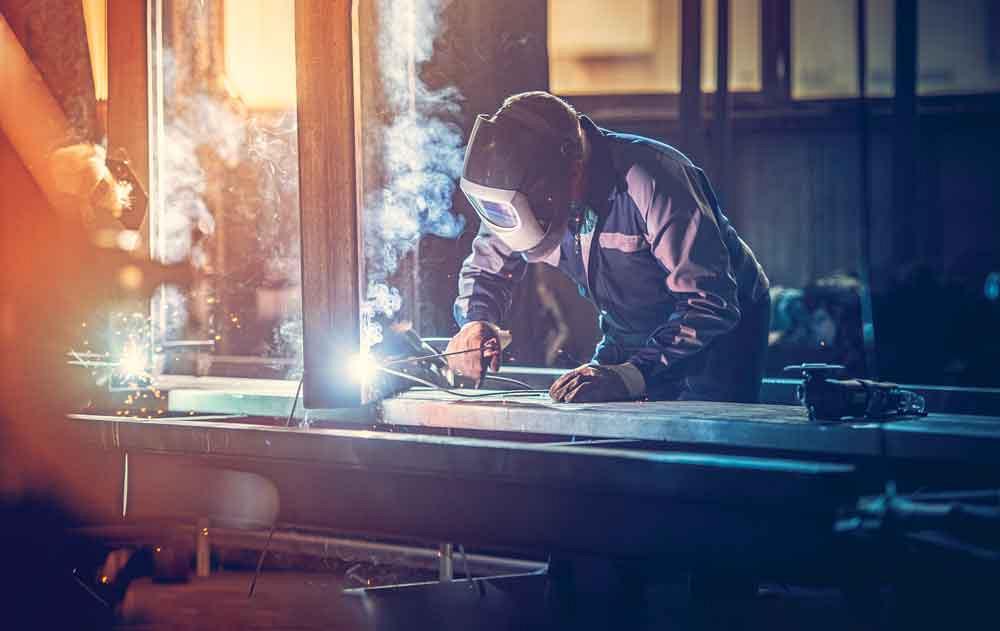
Some employers value qualities like good work ethic, coachability, and commitment over your ability to weld and fabricate. If you’re a new tech school graduate preparing for that first job interview, here are a few key points to keep in mind. Getty Images
“I’ve had people come in for an interview and they are all excited and seem very energetic, and everything seems great until they ask me what we do. It’s kind of like, ‘Are you serious?’ To me, it says a lot if you come into an interview and you’ve done your research on what we do and the industries we serve,” Layman said.
In Rig Fab’s world, making a good first impression includes having certifications, which are not only necessary in the industries it serves, but also a clue to the employer that you have the ability to pass a test and understand the material, Greene said.
“That information is sent and stored in the American Welding Society database, which allows potential employers to verify an applicant’s credentials. Having that doesn’t necessarily mean that they won’t ever have to test again; a lot of times they will have to. But that credential shows that this person has successfully passed that level of testing, understands the process, which should give an employer the confidence that they could do it again if needed,” Greene explained.
Skill Is Important, but So Is Character
Character is defined as the mental and moral qualities distinctive to an individual. Basically, it tells the story of who you are and gives a glimpse into what kind of employee/teammate you will be.
Greene’s personal story is a testament to this. He walked in to interview for his first welding job with only enough knowledge to pass a weld test. He had no welding background but was able to learn enough about the particular type of welding—overhead GMAW—he would need to perform to be hired. What caught the eye of his future boss wasn’t his welding ability; it was his character, his work ethic, and his willingness to try anything.
That company hired Greene and continued to teach him more about welding and the business itself. Eventually he was promoted to shop manager.
“I became good friends with the guy who interviewed me. He told me he didn’t hire me because of my welding skills, he hired me because I was coachable. I now know exactly what he was talking about, and I teach that to my welders,” Greene explained.
Similarly, Layman places more stock in a candidate’s character, professional goals, and how their personality will mesh with other team members than he does in their welding and fabrication abilities or work experience.
“The biggest thing I’m going to target in an interview is the character side of a person. I want to find out what your goals and ambitions are. The biggest thing we look for during an interview is character and how you present yourself. Do you put in the extra effort? Do you show up on time?” Layman said.
Layman has been very intentional about creating a teamwork-based culture, so he is careful about hiring people with the right personality in addition to people who have skill but are also coachable.
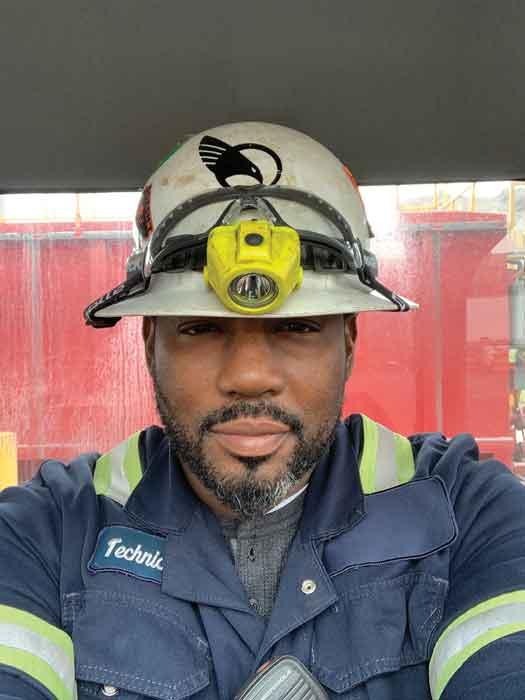
Aubrey Greene uses his backstory of being hardworking, helpful, and willing to learn as a teaching point. In many respects, your value is based less on technical skill and more on how coachable and reliable you are.
“We base it totally on character and we spend time observing how they work. I’ve never made anyone weld during an interview. I can teach someone how to weld, so that’s not really an issue. But as we walk through the shop I can tell a lot about a person just by how they carry themselves and interact with the rest of the team,” Layman said.
Send the Right Message With Social Media
Rig Fab’s message to students in regards to social media is very simple: Keep it professional. Don’t put anything out there that you don’t want your future boss to see.
Layman checks the social media presence of potential employees and will even look at the individuals they interact with. For a guy who elevates character above skill, a potential employee’s social media profile is, in many respects, their resume.
There are times when Layman’s employees have to work out in the field, so hiring high-character individuals is important to him as they are an extension of the business and the Layman brand.
“Your behavior behind a keyboard says a lot about who you are. If you’re willing to get on social media and cuss up a storm, I’m going to assume you will speak that way in the shop or out in the field in front of our customers.”
About the Author

Amanda Carlson
2135 Point Blvd
Elgin, IL 60123
815-227-8260
Amanda Carlson was named as the editor for The WELDER in January 2017. She is responsible for coordinating and writing or editing all of the magazine’s editorial content. Before joining The WELDER, Amanda was a news editor for two years, coordinating and editing all product and industry news items for several publications and thefabricator.com.
About the Publication
subscribe now
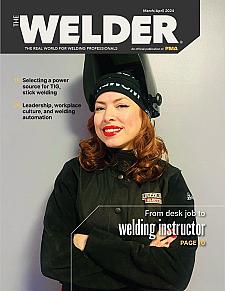
The Welder, formerly known as Practical Welding Today, is a showcase of the real people who make the products we use and work with every day. This magazine has served the welding community in North America well for more than 20 years.
start your free subscription- Stay connected from anywhere

Easily access valuable industry resources now with full access to the digital edition of The Fabricator.

Easily access valuable industry resources now with full access to the digital edition of The Welder.

Easily access valuable industry resources now with full access to the digital edition of The Tube and Pipe Journal.
- Podcasting
- Podcast:
- The Fabricator Podcast
- Published:
- 04/30/2024
- Running Time:
- 53:00
Seth Feldman of Iowa-based Wertzbaugher Services joins The Fabricator Podcast to offer his take as a Gen Zer...
- Trending Articles
Aluminum MIG wires offer smooth feeding, reduced tangling

The role of flux in submerged arc welding performance

Three ESAB welding machines win Red Dot Awards for product design
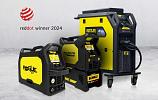
Power source added to cobot welding system for simplified automation
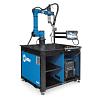
Torch made for welding thin, conductive sheet metal

- Industry Events
Pipe and Tube Conference
- May 21 - 22, 2024
- Omaha, NE
World-Class Roll Forming Workshop
- June 5 - 6, 2024
- Louisville, KY
Advanced Laser Application Workshop
- June 25 - 27, 2024
- Novi, MI
Precision Press Brake Certificate Course
- July 31 - August 1, 2024
- Elgin,

